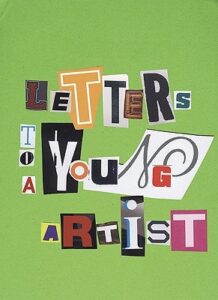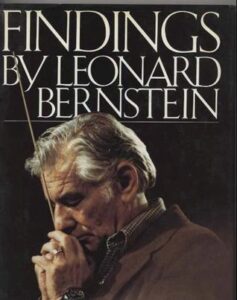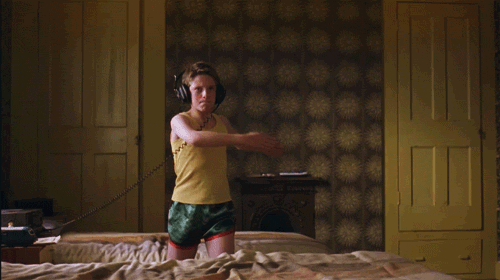Chapter 10 of potential hindrances to our creative development cont…
**00X: If we sell work, we are good and successful artists.**
As always, I am merely exposing a few of the tributaries that may or may not be clogged with resistance to our personal creative evolution. Perhaps the most obvious limitation to this presupposition is in thinking we must sell our work to validate our creativity— as if we need to have physical proof of the value of simply allowing the expression of our deepest selves. Fortunately, we get to decide for ourselves whether we want to share or sell our work for reasons beyond culturally conditioned opinions. But it’s extra frustrating to think of all these negative cultural projections being flung at us once we step into the arena of selling our creative expression— starved, sell-out, slave, hustler, diva, con, blahh. And even when we spot these, they still have sneaky power over us. How do we ditch these deadweight forecasts? Where’s the upside?
Back in 2010, I found comfort in a book called Letters to a Young Artist which contains a collection of two dozen letters from established artists who were commissioned to reply to a fictitious ‘young artist’ asking, “Is it possible to maintain one’s integrity and freedom of thought and still participate in the art world?” One of these responses came from American photographer, Steven Shore:
 “Yes, I think you can do both, participate in the art world and maintain your integrity. But your success in doing it depends on your relationship to your art.
“Yes, I think you can do both, participate in the art world and maintain your integrity. But your success in doing it depends on your relationship to your art.
[…]
More and more, I see students who are driven by a desire to have a show in Chelsea and be a successful artist. Certainly not all students, but I’ve seen a definite shift.
This is understandable, of course. However, for me, it has little to do with why I make art. I believe that art is made to explore the world and the culture, to explore the chosen medium, and to explore one’s self. It is made to communicate, in the medium’s language, a perception, an observation, an understanding, an emotional or mental state. It is made to answer, or try to answer questions. It is made for fun. In short, it is made in response to personal needs and demands.
A student might see a great work of art and say to himself, “This is a great work of art. I want to make a great work of art, too.” And so, the student sets out to try to do so. And if he has some talent, he might produce something that looks just as though it were a work of art— almost convincing. If one didn’t know any better one might actually mistake it for a work of art. The only problem is that the great work of art that the student so admired was not a product of these same motives. It was the by-product of the artist’s personal quest.
Having ambition is not a problem. In fact, ambition is necessary to be able to carve out the time needed to produce your work from the multitude of other demands in your life. The question is how that ambition is directed. If you adhere to your personal path, having shows and sales will not do any harm. In fact you might actually make enough money to live, even live well. There’s nothing at all wrong with that. The problem comes when the market begins to influence your motives and decisions. If your work needs to evolve and change, it may mean abandoning an approach that brought you recognition.”
From this letter, I gathered that there is a need to trust in our persona quest. This is no cinch when we consider that inner transformation is a faded background to the dominant materialist perspective. In sorting out our own rhythm with work and money, it might be useful to take a closer look at our motives for making and selling our work. After taking into account what’s already been said in the last 3 posts, what if our art is spurred on by the prospect of fame and fortune? Legendary composer Leonard Bernstein gave a speech at New York’s Brandeis Creative Arts Award Dinner On May 26, 1964, where he considered this motivation:
 “Money is a perfectly valid motivation for art, as much as we’d like not to think so; but since it’s also the chief motivation for selling shoes, or Buicks, or chewing gum, it doesn’t quite explain what motivates art in particular. The same might be said for the other low-down motivating forces, like success, fame, popularity, adulation, and the rest; they are all, undeniably, motivations for the artist, for all artists; but insofar as these ideals also motivate Senators, Beatles, and fan dancers, one cannot say that they are uniquely motivations for art — that useless, most unsenatorial endeavor called Art.”
“Money is a perfectly valid motivation for art, as much as we’d like not to think so; but since it’s also the chief motivation for selling shoes, or Buicks, or chewing gum, it doesn’t quite explain what motivates art in particular. The same might be said for the other low-down motivating forces, like success, fame, popularity, adulation, and the rest; they are all, undeniably, motivations for the artist, for all artists; but insofar as these ideals also motivate Senators, Beatles, and fan dancers, one cannot say that they are uniquely motivations for art — that useless, most unsenatorial endeavor called Art.”
So although there’s nothing wrong with being motivated by money or accolades, we might want to locate the source of this incentive when we meet resistance or dissatisfaction. We’ve all been beaten over the head with money can’t buy happiness but it’s easy to ignore this when the motive for money drives the majority of cultural production— so it probably wouldn’t hurt to dip into our own particular conditioning around working for the money (in case we are hiding behind something). Writer and philosopher John Armstrong has pointed out:
Training teaches how to carry out a specific task more efficiently and reliably. Education, on the other hand, opens and enriches a person’s mind. To train a person, you need know nothing about who they really are, or what they love, or why. Education reaches out to embrace the whole person. Historically, we have treated money as a matter of training, rather than education in its wider and more dignified sense.
[…]
When we talk about happiness, what do we have in mind? Probably a mixture of buoyancy and serenity; you feel elated but safe.
Money can purchase the symbols but not the causes of serenity and buoyancy. In a straightforward way we must agree that money cannot buy happiness.
Regardless of our motivations, if we decide to fully commit to our creative practice and want to make a living at it, we’re going to need success. It’s just going to depend how each of us comes to a sense of “serenity and buoyancy.” Who is to say this cannot be done with integrity if we manage to trust and stay aligned with our spontaneous creative impulses? Pablo Picasso was convinced that artists need success:
“Well, success is an important thing! It’s often been said that an artist ought to work for himself, for the “love of art,” that he ought to have contempt for success. Untrue! An artist needs success. And not only to live off it, but especially to produce his body of work. Even a rich painter has to have success. Few people understand anything about art, and not everyone is sensitive to painting. Most judge the world of art by success. Why, then, leave success to “best-selling painters”? Every generation has its own. But where is it written that success must always go to those who cater to the public’s taste? For myself, I wanted to prove that you can have success in spite of everyone, without compromise.”
If we do decide to mingle our creative expression with commerce, we could follow Steven Shore’s lead and get clear on our motives as a point of departure. We might ask ourselves the following:
Am I clear on my boundaries? Do I worry too much about what others think?
Am I responding or reacting to any shoulds— am I pressured by outside forces and expectations?
Have I bought into any stereotypes that have planted fear and avoidance in my process?
It’s slightly amusing to me that we can get to the time/space where we totally trust in our intuition woven into our spontaneous creative impulses, but then we might have crippling (or even limping) doubt about how to move in the field of currency. We might embrace abstraction in our practice but then be totally baffled by the abstract nature of money. A friend recently told me that she heard someone suggest thinking about money as an exchange of enthusiasm. I feel the possibilities in that.
“I don’t se anything wrong with artists making money. And art really isn’t that expensive compared with other luxury goods— a painting costs less than a sports car. If art makes you feel something, then the expense is worth it.”
~THOMAS DEMAND
Where these musings kicked off…
*Disclaimer: No copyright infringement intended. I do my best to track down original sources. All rights and credits reserved to respective owner(s). Email me for credits/removal.
